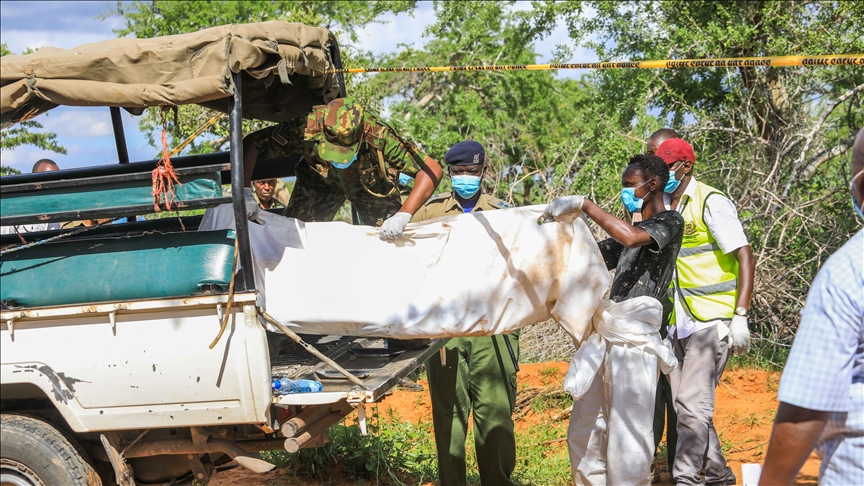
Kenyan authorities have prohibited five churches, including the one led by a suspected cult leader who allegedly encouraged over 400 of his followers to engage in self-imposed starvation leading to their deaths, a government document released on Friday said.
The registrar of societies announced through a gazette notice that the license of self-proclaimed pastor Paul Nthenge Mackenzie’s Good News International Ministries was revoked, effective from May 19.
Mackenzie is accused of encouraging his followers to intentionally starve themselves to death, under the belief that it would enable them to “meet Jesus.”
Although starvation seems to be the primary cause of death, official autopsies have revealed that some of the victims, including children, were also subjected to strangulation, beating, or suffocation.
Furthermore, authorities have also prohibited four additional churches, including the New Life Prayer Centre and Church led by the flamboyant televangelist Ezekiel Odero, who has been connected to Mackenzie.
Odero is currently being investigated on multiple charges, including murder, assisting suicide, radicalization, and money laundering.
In April, he was arrested after human remains were found in Shakahola forest near the coastal town of Malindi. Police confirmed that the bodies belonged to followers of Mackenzie.
Although prosecutors have connected the two preachers, Odero was granted bail in May, while Mackenzie’s detention was extended for an additional 47 days by a court last week, pending further investigation.
Kenya, a predominantly Christian nation, has faced challenges in regulating unscrupulous churches and cults involved in criminal activities.
The disturbing findings in what is now known as the “Shakahola forest massacre” led the government to emphasize the necessity for increased oversight of fringe denominations in a country that has experienced instances of self-proclaimed pastors and movements.
Previous attempts have faced strong opposition, with critics arguing that they aim to undermine constitutional safeguards for the separation of church and state.
According to government data, the East African nation with a population of 53 million has over 4,000 registered churches.
A significant number of these churches, led by charismatic pastors, advocate the prosperity gospel, encouraging followers to make substantial donations to the church to supposedly enhance their own financial prosperity.
